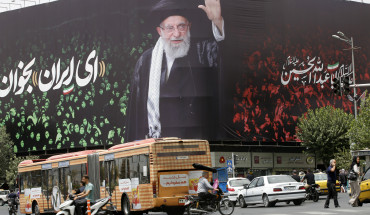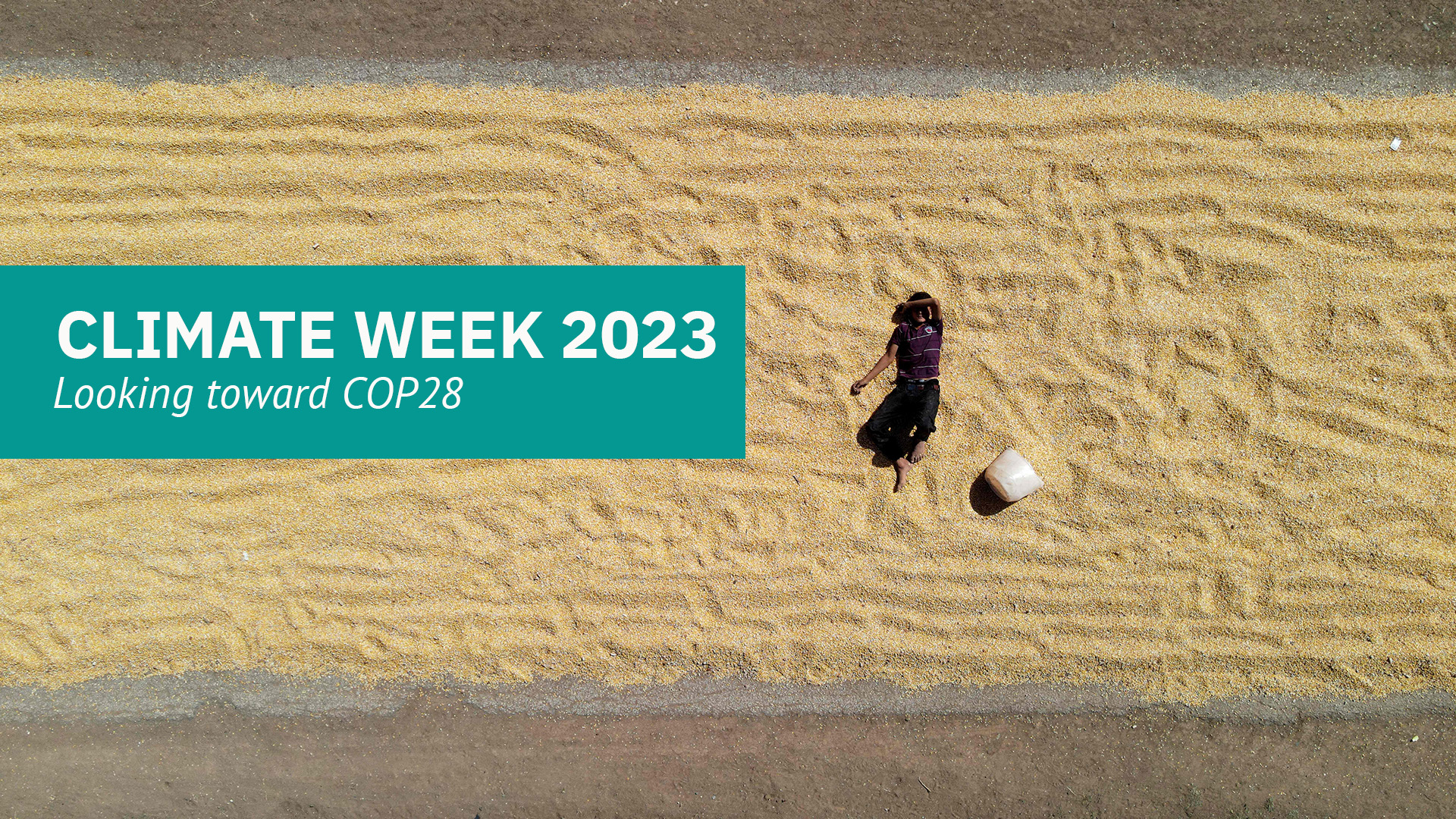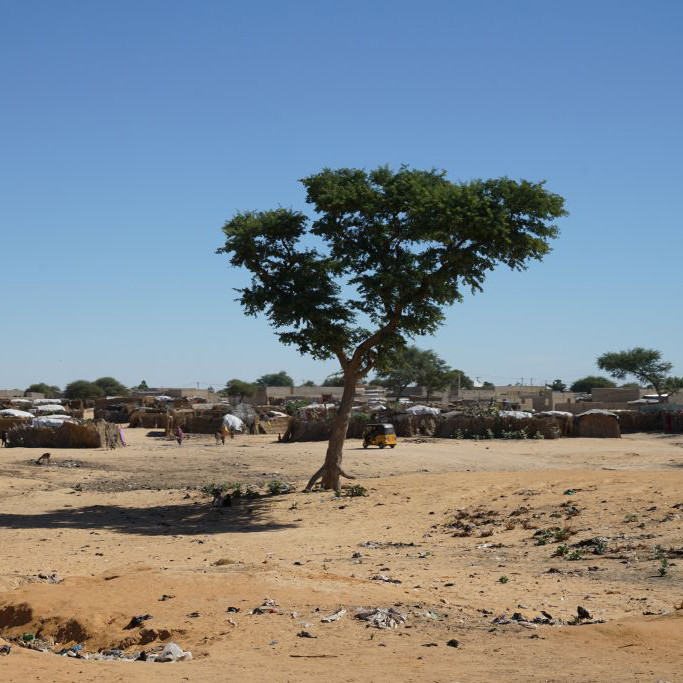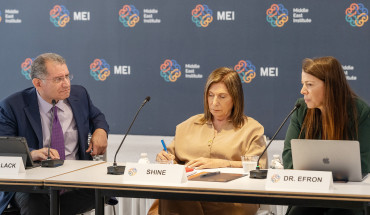


Join MEI for Climate Week!
The Middle East Institute (MEI) is pleased to convene a virtual conference highlighting a number of synergistic themes associated with climate change from June 26-30. These daily themes put into focus areas of priority for the Middle East and North Africa (MENA), as the region begins to look ahead towards hosting the upcoming COP28 climate meeting in the UAE, following last year’s COP27 meeting in Egypt.
Building on the outcomes of COP27 and incorporating pressing climate issues for COP28, this event will feature climate resilience leaders, experts, and advocates in a series of keynote presentations and panels that bring to the forefront the MENA’s role in addressing the climate crisis.
Conference Agenda
Each session will take place from 10:00am to 12:00pm EDT. Additional speakers to be announced.
Monday, June 26, 2023
Water Management & Environmental Sustainability
The MENA region faces several water and environmental challenges that have significant implications for the environment, human health, and socio-economic development. To address these challenges, sustainable water management practices, such as efficient irrigation, wastewater treatment, and water conservation, are essential. Another critical aspect of water management and environmental sustainability is the preservation of ecosystems and biodiversity. The region is home to several unique ecosystems that are under threat from human activities such as urbanization, land-use change, and pollution. To mitigate these threats, nations in the region are implementing policies that promote environmental sustainability, ecosystem protection, and sustainable agriculture, to ensure the availability and quality of natural resources for future generations.
Newsha Ajami
Chief Development Officer for Research, Berkeley Lab's Earth and Environmental Sciences Area
Hussein Amery
Professor of Water Politics and Policy, Colorado School of Mines
Logan Cochrane
Associate Professor, College of Public Policy, Hamad Bin Khalifa University
Diana Francis
Assistant Professor & Head of ENGEOS Lab, Khalifa University
Paul Fleming (moderator)
Advisory Council Member, Climate and Water Program, Middle East Institute
Tuesday, June 27
Youth Activism & Climate Engagement
The future of youth activism and climate engagement in the MENA region is promising, as young people increasingly recognize the urgency of addressing climate change and are taking action to promote environmental sustainability and climate resilience. Young people in the MENA region are already leading grassroots movements and campaigns to raise awareness about climate change and advocate for policy changes. And as such, youth-led organizations and initiatives focused on environmental sustainability and climate resilience are emerging across the region. With the increasing use of technology and social media, young people in the region have the potential to play a significant role in promoting climate action and advancing sustainable development in the years to come.
Athra KhamisUAE Ministry of Climate and the Environment
Michel Frem UNESCO Groundwater Youth Network
Sarah AlhartheySenior Business Development Manager, ACWA Power
Neeshad Shafi (moderator) Co-Founder, Arab Youth Climate Movement Qatar
Wednesday, June 28
The Climate & Security Nexus
The MENA region is facing several security challenges, including political instability and conflicts, which are likely to be exacerbated by climate change implications such as water scarcity, food insecurity, and natural disasters. Water scarcity can lead to social and economic tensions and has the potential to trigger conflicts between and within countries. Similarly, food insecurity can trigger social unrest and political instability, particularly in countries with weak economies and limited resources. Natural disasters, such as floods and droughts, can also have significant security implications for countries with poor infrastructure and limited disaster management capabilities. Addressing these challenges will require a comprehensive and coordinated approach, including measures to promote climate resilience, enhance disaster management capabilities, and promote regional cooperation and dialogue.
Tom Ellison Deputy Director, Center for Climate and Security
Tobias von Lossow Research Fellow, Clingendael
Mirette F. Mabrouk MEI Egypt Program Director
Iulia-Sabina Joja (moderator) Director, Black Sea Program, Middle East Institute
Thursday, June 29
Energy Transition & the Green Circular Economy
The MENA region has taken steps towards a sustainable future by investing in renewable energy and transitioning towards a green circular economy. Several countries in the region have set ambitious targets for expanding renewable energy and reducing carbon emissions by investing heavily in renewable energy technologies. The region is also adopting initiatives to reduce waste and promote sustainable resource use through circular economy principles that include waste reduction, recycling, and repurposing of materials, in addition to the use of renewable resources and energy-efficient technologies. These policies will not only seek to reduce carbon emissions and environmental degradation in the region but will also create new economic opportunities and enhance energy security.
H.E. Dr. Nawal Al-Hosany (keynote) UAE Permanent Representative to IRENA
Sherif Ayoub Senior Director for Finance and Operations, Sustainable Energy for All
Carole Nakhle Founder and Chief Executive Officer, Crystal Energy
Jauad El Kharraz Executive Director, Regional Center for Renewable Energy & Energy Efficiency
Sara Vakhshouri Founder, SVB Energy International and SVB Green Access
Andrei Covatariu (moderator) Energy and Climate Policy Expert
Friday, June 30
Climate Resilience & Sustainability in Cities
Cities and climate resilience are interconnected in the MENA region, where rapid urbanization and climate change pose significant challenges to urban development and environmental sustainability. Climate change impacts such as rising temperatures, drought, and flooding are expected to exacerbate water scarcity, food security, and public health issues, particularly in urban areas. Cities in the region are increasingly incorporating climate resilience measures and innovative solutions to mitigate the impacts of climate change. Progressive approaches to urban planning, such as green infrastructure and urban agriculture, can help enhance the resilience of cities to climate change, while also promoting environmental sustainability and economic development.
Shruti Narayan Regional Director of South and West Asia, C40
Karim Elgendy Founder, Carboun
Jamila Elmir Senior Advisor, High Level Climate Champions
Steven Kenney (moderator) Director, Strategic Foresight Initiative, Middle East Institute
Photo: RAMI AL SAYED/AFP via Getty Images










